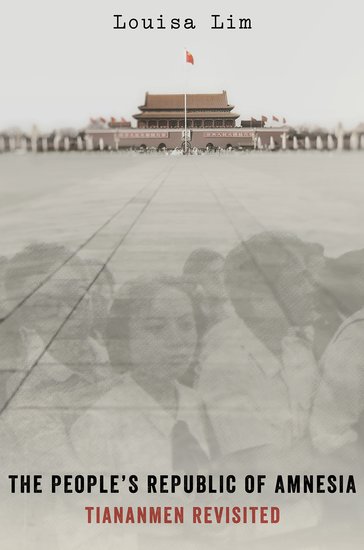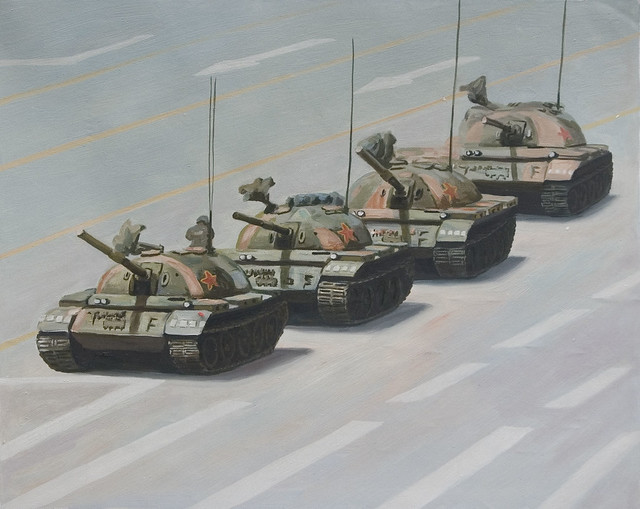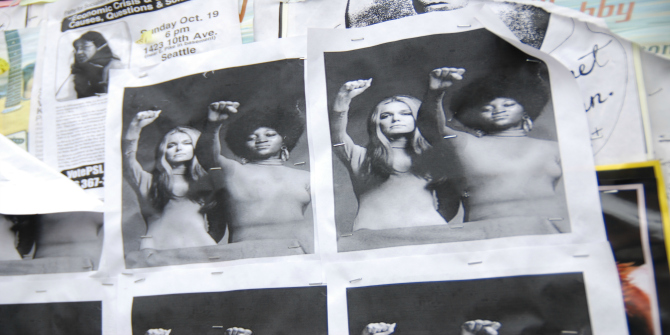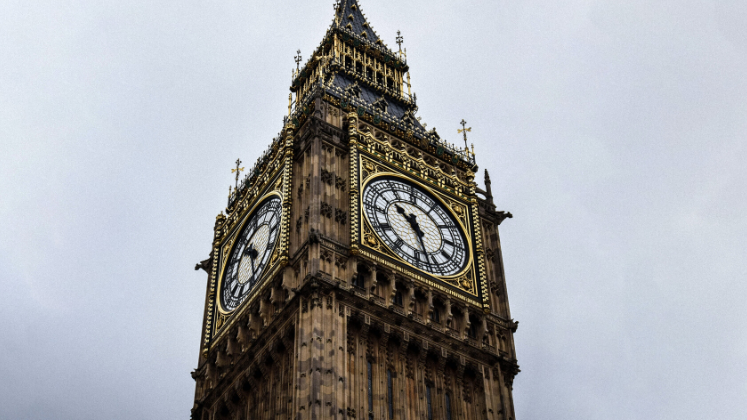
In The People’s Republic of Amnesia, NPR and former BBC correspondent Louisa Lim aims to chart how the events of June 4th 1989 changed China, and how China changed the events of Tiananmen Square by rewriting its own history. Andrea Janku finds this a persuasive and fascinating read.
 The People’s Republic of Amnesia: Tiananmen Revisited. Louisa Lim. Oxford University Press. 2014.
The People’s Republic of Amnesia: Tiananmen Revisited. Louisa Lim. Oxford University Press. 2014.
It is astonishing that the 25th anniversary of one of the key events in China’s modern history has triggered comparatively little academic activity. The occupation of Tiananmen Square by student demonstrators in the spring of 1989 and the ensuing massacre in the streets of Beijing committed by the People’s Liberation Army was an event that brought many consequences for China. It thoroughly put an end to any reform of China’s political system while ensuring the continuation and indeed acceleration of the country’s economic transformation. It also ushered in a new era in which the history of class struggle has been turned into a history of China’s national humiliation. Finally, it made it possible to elevate nationalism and consumerism to core values supported by the party-state and to legitimate to a considerable extent the enormous effort and cost of the now most important task of ‘stability maintenance’.
So far so good, only that for all that to work the state has to provide the authoritative version of events, alternative accounts of what actually happened have to be eliminated, or what happened should simply not be spoken about and ideally be simply forgotten. State-imposed amnesia is a motive that Fang Lizhi famously wrote about in 1989, citing earlier instances of similar movements later activists knew nothing about, such as the Democracy Wall Movement of 1979, perhaps adding to the naiveté of the students in 1989. But in a sense, forgetting is the easy solution to painful experiences, even for those who were the victims of the brutal suppression, which may explain why the general public seems to be all too happy to swallow the state-prescribed amnesia pill. Under the existing circumstances it takes a lot of courage and perseverance to remember and keep the memory alive, to give testimony against the overwhelming power of the state-imposed narrative that is seen by the majority as the foundation of national wealth and power.
To document the courage of the individuals interviewed for this book is perhaps the most valuable contribution of Louisa Lim’s important work, and, interestingly, to some extent her observations defy her acknowledgement of the success of the state-imposed amnesia. The majority may happily believe what they are told, many may want to protect their children by keeping them ignorant, but there will always be those who preserve the seeds of remembrance. When Albert Camus wrote his ‘Letters to a German Friend’ in 1943 he was confident about the eventual victory of truth and justice over lies and brute force. Ultimately, a ‘national identity based on lies’ (p.211) suffers from an inherent weakness that will eventually make it collapse.

But China is of course different and the relative dearth of new, in-depth academic studies (The Impact of China’s 1989 Tiananmen Massacre edited by Jean Philippe Béja belongs to the few exceptions) – as opposed to the flood of publications churned out in the years immediately after the event – testifies to the strength of the state’s monopoly on information. Researching sensitive issues is difficult, archives remain closed. At the same time the work of commemoration continues outside academia. Individuals such as Ding Zilin and Zhang Xianling, the founders of the Tiananmen Mothers, devote their lives to the task of identifying individual victims and documenting their fate. Others such as Ya Yi carried out interviews with exiled participants of the movement. Wu Renhua engaged in painstaking detective work to reconstruct the actions of the military. The reminiscences and diaries of prominent participants, including those of student leaders such as Wang Dan and Chai Ling, as well as leading political figures at the time such as Zhao Ziyang and Li Peng, have been published in Hong Kong and Taiwan, and internal documents mysteriously find their way out of the country. And now we have journalist Louisa Lim’s extraordinary collection of interviews and investigations. Even though the archives will remain out of reach for the foreseeable future, these efforts contribute tremendously to a better understanding of what happened.
In eight chapters Lim’s book provides portraits of seven people and a city: Chen Guang, a PLA soldier turned artist who tells about his experiences as a member of the martial law troops; Zhang Ming, no.19 on the most wanted list, whose business success after his time in prison was repeatedly thwarted by the powers that be, whose business partner believes that ‘the government was right at the time’ (p.57) and whose wife is ‘too young to care’ (p.58); the disillusioned former student leader Wu’er Kaixi in his Taiwanese exile, suffering from being ignored when he desperately tries to get arrested in an attempt to be able to get back into China; a student from Sichuan visiting Lee Cheuk-yan’s June Fourth Museum in Hong Kong; Tiananmen Mothers founder Zhang Xianling, now in her late 70s, whose mourning for her son shot dead by PLA soldiers turns her into a threat to the state; the ‘patriot’ Gao Yong, in a chapter developing the argument about nationalism as the new source of regime legitimation; and most interestingly, the final two chapters about Bao Tong, former secretary to Zhao Ziyang, who was detained even before the movement was suppressed, and the post-suppression protests in the city of Chengdu, which included brutal killings within the precincts of the Jinjiang Hotel observed independently by different foreign visitors at the time.
Without being able to provide any answers, Lim is perseverant in following all the leads to reconstruct what happened. This is what makes the book extraordinarily valuable and worth reading. The encounters with these people are described in a sensitive and often personal tone, reflecting for example on the embarrassment of eating in the presence of a man who exists on a diet of nothing but milk as a consequence of his prison experiences (p.46), or writing in a slightly top-down tone about the ‘materialistic interests’ and the weibo habits of a young student (pp.89, 101). Some passages give the background narrative of the course of events, others serve as convenient summaries of the China reporting in recent years. But all provide fascinating stories and new insights, and give testimony to the predicaments, the defiance, and the courage of the people portrayed.
One of the most intriguing passages is perhaps where Bao Tong tells about his reading of Li Peng’s diary, which in his view clearly showed that ‘Deng Xiaoping had been looking for a way to remove Zhao Ziyang even before the student movement gained momentum’ (p.171), leading him to conclude that what happened ‘had nothing to do with the students’ and that, similar to 1979, Deng simply ‘used the students as a tool to oust his successor,’ that the whole thing was ‘an engineered coup’ (p.172). While there remains a lot to be studied, it is safe to say that despite the novelty of the event, manifest in the fact that the presence of foreign media had turned it into a global media spectacle, the politics underlying it did not actually deviate from established patterns. And this is likely exactly what the architects of the coup wanted to achieve. One wonders what would have happened if Zhao Ziyang had been able to sustain his position. For now, the state’s vengeance on those who dare to question its ways is becoming increasingly merciless, as the case of the rights protection lawyer Gao Zhisheng recently released from a three-year prison term clearly shows. But despite the clear superiority of state power, I would like to share Albert Camus’ confidence in the final victory of truth and justice.
Andrea Janku is a Senior Lecturer in the History of China, SOAS, University of London. Read more reviews by Andrea.








1 Comments